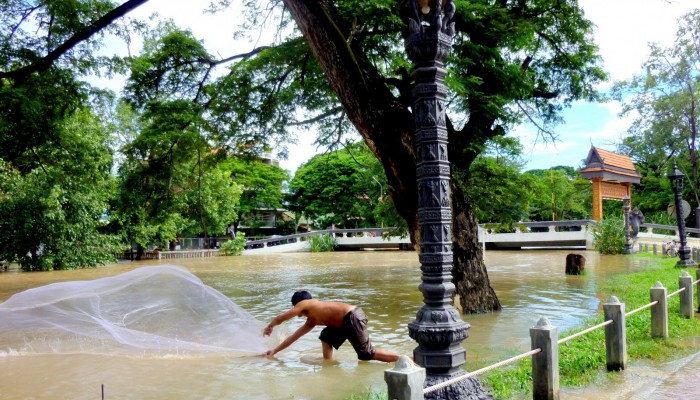
Credit: Anna Lourantou (distributed via imaggeo.egu.eu)
The Aqueduct Global Flood Analyzer of the World Research Insitute is a web-based interactive platform which measures river flood impacts by urban damage, affected GDP, and affected population at the country, state, and river basin scale across the globe. It aims to raise the awareness about flood risks and climate change impacts by providing open access to global flood risk data free of charge.
The Analyzer enables users to estimate current flood risk for a specific geographic unit, taking into account existing local flood protection levels. It also allows users to project future flood risk with three climate and socio-economic change scenarios. These estimates can help decision makers quantify and monetize flood damage in cost-benefit analyses when evaluating and financing risk mitigation and climate adaptation projects.
In short, the results of the Analyzer are meant to provide a first impression of the distribution of risk among countries, provinces, and basins. This provides an indication of risk magnitude, and an impression of the magnitude of future change in risk that can be expected. The results should be used to focus attention on particular vulnerable areas and open dialogues on the risks and how they can be managed. The results can certainly not be used for the dimensioning of specific flood protection measures. This would require more detailed and locally calibrated models that include additional information on local conditions, including more accurate river profiles, structures, existing flood protection, reservoir conditions and management during floods, and more accurate information on exposure and vulnerability. It would also require thorough engagement with local experts and stakeholders.
The Aqueduct Global Flood Analyzer was developed in collaboration with Deltares, Utrecht University, the Institute for Environmental Studies of the Free University of Amsterdam and the Netherlands Environmental Assessment Agency.

